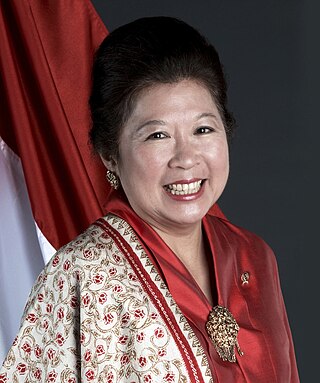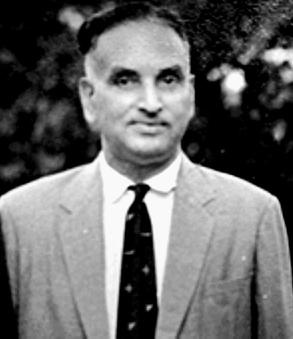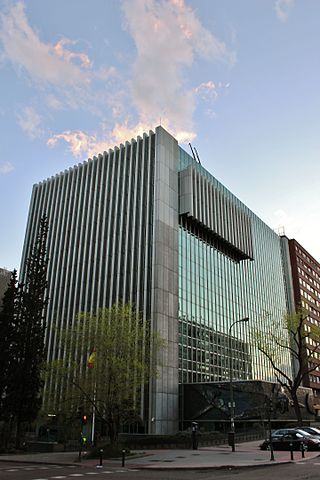Related Research Articles

Thiruvananthapuram, formerly known as Trivandrum, is the capital of the Indian state of Kerala. It is the most populous city in Kerala with a population of 2,891,000 as of 2023. The encompassing urban agglomeration population is around 2.9 million. Located on the west coast of India near the extreme south of the mainland, Thiruvananthapuram is a major information technology hub in Kerala and contributes 55% of the state's software exports as of 2016. Referred to by Mahatma Gandhi as the "Evergreen city of India", the city is characterised by its undulating terrain of low coastal hills.
Private sector development (PSD) is a term in the international development industry to refer to a range of strategies for promoting economic growth and reducing poverty in developing countries by building private enterprises. This could be through working with firms directly, with membership organisations to represent them, or through a range of areas of policy and regulation to promote functioning, competitive markets.

Mari Elka Pangestu, is an Indonesian economist who served as managing director of Development Policy and Partnerships in the World Bank from 2020 to 2023. The President of the World Bank, David Malpass, announced her appointment on 9 January 2020 saying that she would be responsible for development policy and partnerships in her role in the bank. Previously she served as Minister of Trade in Indonesia from October 2004 to October 2011.

The economy of Kerala is the 9th largest in India, with an annual gross state product (GSP) of ₹9.78 lakh crore in 2020–2021. Per-capita GSP of Kerala during the same period is ₹257,711 (US$3,200), the sixth largest in India. In 2019–20, the tertiary sector contributed around 63% of the state's GSVA, compared to 28% by secondary sector, and 8% by primary sector.
The Deutsche Gesellschaft für Internationale Zusammenarbeit (GIZ) GmbH, often simply shortened to GIZ, is the main German development agency. It is headquartered in Bonn and Eschborn and provides services in the field of international development cooperation and international education work. The organization's self-declared goal is to deliver effective solutions that offer people better prospects and sustainably improve their living conditions.

Kerala, a state situated on the tropical Malabar Coast of southwestern India, is one of the most popular tourist destinations in the country. Named as one of the ten paradises of the world by National Geographic Traveler, Kerala is famous especially for its ecotourism initiatives and beautiful backwaters. Its unique culture and traditions, coupled with its varied demography, have made Kerala one of the most popular tourist destinations in the world. Several international agencies ranging from UNESCO to National Geographic have recognised the state's tourism potential. Kerala was named by TIME magazine in 2022 among the 50 extraordinary destinations to explore in its list of the World's Greatest Places. In 2023, Kerala was listed at the 13th spot in The New York Times' annual list of places to visit and was the only tourist destination listed from India.

The Kerala Tourism Development Corporation (KTDC) is a public sector undertaking that conducts and regulates the tourism activities in the Indian state of Kerala. The KTDC is headquartered at Thiruvananthapuram and has offices across all the districts of Kerala. The agency also operates hotels, resorts, and tourist rest houses in key locations in the state. Its official slogan is "Official host to God's own country." It is one of the most profitable ventures of the Kerala government.
The Ministry of Tourism is a cabinet-level federal ministry created on January 1, 2003. It is responsible for Embratur, the Brazilian Tourist Board.
Established in 1993, the Investment and Development Agency of Latvia (LIAA) acts under the Ministry of Ministry of Economics of the Republic of Latvia.
Abu Dhabi Tourism Authority (ADTA) was a statutory body in the United Arab Emirates established in 2004 under the Government of Abu Dhabi’s economic diversification strategy. The authority had wide-ranging responsibilities for the promotion and development of the emirate’s tourism industry and international positioning as a destination of distinction.
The Maryland Department of Commerce is a government agency in the state of Maryland in the United States. Although it was originally founded in 1884, the department came to be recognized as the Department of Commerce in 2015.

Lt. Col. P. R. Godavarma Raja, often referred to as G. V. Raja, was an Indian sports and tourism promoter and administrator, pilot, sportsman and Sanskrit scholar. He took special care in inspiring the youth into sports and was instrumental in founding the Kerala Sports Council in 1953. G. V. Raja occupied the post of Council President till he was killed in a flight mishap in 1971. G. V. Raja also played a key role in establishing the Trivandrum Tennis Club, Flying Club, and the development of the Thiruvananthapuram International Airport. As the spouse of Karthika Thirunal Lakshmi Bayi, he became the prince consort of Travancore.

Tourist Resorts (Kerala) Ltd or (TRKL) is a Government of Kerala undertaking under Kerala Tourism Department, established in August 1989 to promote tourism investment and to develop Tourism infrastructure in the Indian state of Kerala. TRKL was conceived to identify tourism infrastructure needs of the state and bridge any identified gaps. Kerala is today growing at an amazing pace in tourism, adhering to the principles of indigenousness, environmental sustainability and community participation. Kerala's beaches, hill stations, backwaters, wildlife sanctuaries, historical monuments, etc. attract foreign as well as domestic tourists.
The first USAID funded Jordan Tourism Development Project ran for three years (2005–2008) providing technical assistance, training and other services to help Jordan implement its National Tourism Strategy designed to double tourism receipts by 2010. It promoted Jordan’s competitiveness as an international tourism destination by establishing a strong institutional and regulatory framework that promoted private-sector investment, stimulates tourism growth and preserves national tourism assets and the environment.
The Seychelles Tourism Board (STB), a public/private sector body headed by CEO Mrs. Sherin Francis, with Mrs. Kathleen Mason as Chairperson, oversees most aspects of Seychelles' tourism industry whose Minister is Mr. Didier Dogley. The Seychelles Tourism Board is responsible for the promotion and marketing of the Seychelles islands as the preferred tourist destination.
National Cyber Security Policy is a policy framework by Department of Electronics and Information Technology (DeitY) It aims at protecting the public and private infrastructure from cyber attacks. The policy also intends to safeguard "information, such as personal information, financial and banking information and sovereign data". This was particularly relevant in the wake of US National Security Agency (NSA) leaks that suggested the US government agencies are spying on Indian users, who have no legal or technical safeguards against it. Ministry of Communications and Information Technology (India) defines Cyberspace as a complex environment consisting of interactions between people, software services supported by worldwide distribution of information and communication technology.
This article summarizes the development of science and technology in Cambodia from a policy perspective.

Zurab Pololikashvili is a Georgian politician and diplomat, currently serving as Secretary-General of the World Tourism Organization. From 2005 to 2009 he was Georgian deputy Foreign Minister, and he served as ambassador to Spain, Morocco, Algeria and Andorra.

The Secretary of State for Tourism (SETUR) is a high-ranking official of the Ministry of Industry, Trade and Tourism of the Government of Spain.
Disinvestment in India is a policy of the Government of India, wherein the Government liquidates its assets in the Public sector Enterprises partially or fully. The decision to disinvest is mainly to reduce the fiscal burden and bridge the revenue shortfall of the government. The key engine in achieving growth in India during post-independence was played by Public Sector Enterprises (PSE). Among other responsibilities of PSE's post-independence, the social and developmental obligations of the nation were most important, which resulted in these units escaping competitive race. Later on the activities of the PSU's were divergent, concentrating towards more non-core areas like hotels and consumer goods among others. Further, the public enterprises were used as tools for political and bureaucratic manipulation; which was consequential in low capacity utilization, reduced productivity, failure to innovate, and complex decision-making processes on vital issues of development.
References
- ↑ "Kerala's Approach to Tourism Development: A Case Study" (PDF). Ministry of Tourism & Culture, Government of India. Archived from the original (PDF) on 16 May 2011. Retrieved 22 May 2011.